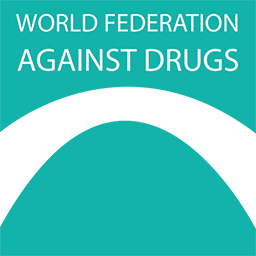The national press, and especially the foreign, has referred with outlandish insistence, on the eve of two important elections in Portugal, the “resounding success” of the decriminalization of drugs launched in 2001 by the Socialist Government, neglecting all other European countries and in prejudice of the guidelines of the UN Conventions of which Portugal is a signatory.
Respect for the truth of the matter requires the Association for a Drug Free Portugal (APLD) to clarify to the Portuguese, and others, the real consequences of the implementation of this current policy, independent of particular party affiliation. Portugal adopted a unique and unmistakably questionable ‘solution’ to manage the nightmare of drugs.
Recent articles in the weekly British magazine, The Economist and The Cato Institute of Washington promote government options as a legitimate right. The problem is the rest; the manipulation of the facts and numbers is unacceptable!
In 2006, the total number of deaths as a consequence of overdose did not diminish radically compared to 2000, nor did the percentage of drug addicts with AIDS decrease significantly (from 57% to 43%). The opposite occurred.
Portugal faces a worrying deterioration of the drug situation. The facts prove “With 219 deaths from ‘overdose’ per year, Portugal has one of the worst results, with one death every two days. Along with Greece, Austria and Finland, Portugal registered an increase of deaths by more than 30% in 2005 ” and ” Portugal remains the country with the highest increase of AIDS as a result of injecting drugs (85 new cases per million residents in 2005, when the majority of countries do not surpass 5 cases per million). Portugal is the only country that recorded a recent increase, with 36 new cases estimated per million in 2005 when in 2004 only 30 were registered” (European Observatory for Drugs and Drug Addiction 2007). The European report also confirmed that in 2006, Portugal had registered 703 new cases of SIDA, which corresponds to a rate eight times higher than the European average!
The decriminalization of drugs in Portugal did not in any way decrease levels of consumption. On the contrary, “the consumption of drugs in Portugal increased by 4.2% – the percentage of people who have experimented with drugs at least once in their lifetime increased from 7.8% in 2001 to 12% in 2007 (IDT-Institute for Drugs and Drug Addiction Portuguese, 2008).
With regard to the consumption of cocaine “the latest data (surveys from 2005-2007) confirms the increasing trend during the last year in France, Ireland, Spain, The United Kingdom, Italy, Denmark and Portugal” (EMCDDA 2008). While rates of use of cocaine and amphetamine doubled in Portugal, seizures of cocaine have increased sevenfold between 2001 and 2006, the sixth highest in the world (WDR-World Drug Report, 2009).
With regard to hashish, it is difficult to assess the trends and intensive use of hashish in Europe, but among the countries that participated in field trials, between 2004 and 2007 (France, Spain, Ireland, Greece, Italy, Greece, Italy, The Netherlands and Portugal) there was an average increase of approximately 20% ” (EMCDDA, 2008).
In Portugal, since decriminalization has been implemented, the number of homicides related to drugs has increased 40%. “It was the only European country with a significant increase in (drug-related) murders between 2001 and 2006” (WDR, 2009).
A recent report commissioned by IDT, the Center for Studies and Opinion Polls (CESOP) of the Portuguese Catholic University, based on direct interviews regarding the attitudes of the Portuguese towards drug addiction (which has strangely never been released), revealed the following: 83.7% of respondents indicated that the number of drug users in Portugal has increased in the last four years. 66.8% believe that the accessibility of drugs in their neighborhoods was easy or very easy and 77.3% stated that crime related to drugs has also increased (“Toxicodependências” No. 3, 2007).
This is the painful reality in Portugal- the attitude towards drugs and drug addiction. For the Portuguese government, drug addicts are essentially regarded as ‘sick’. This is not only a suicidal attitude, but a public expense. Pretend you are sick and the government pretends to treat you! The decriminalization of consumption, possession and acquisition for consumption has added to the illicit consumption of drugs. Legalizing a crime committed by “drug addicts” (or “the sick”) does not seem the most effective way to combat the problem, as shown by greatly increased rate of drug-related homicides recorded in Portugal compared to other countries with reduced dependence and related crime.
What is happening in Portugal is very peculiar; drug addicts, with the support of the government, rely on their status as ‘sick’. But these addicts often forget that they are ‘sick’ and are assumed as free and responsible people, who are able to decide whether they want treatment or not! As a result of decriminalization the addict is considered a patient and not a delinquent. The state can not choose, through a political policy, a solution that gives priority to feed the “disease” rather than a cure! Resounding success? Glance at the results!
Manuel Pinto Coelho
President of the Association for a Drug Free Portugal


Leave a Reply
You must be logged in to post a comment.